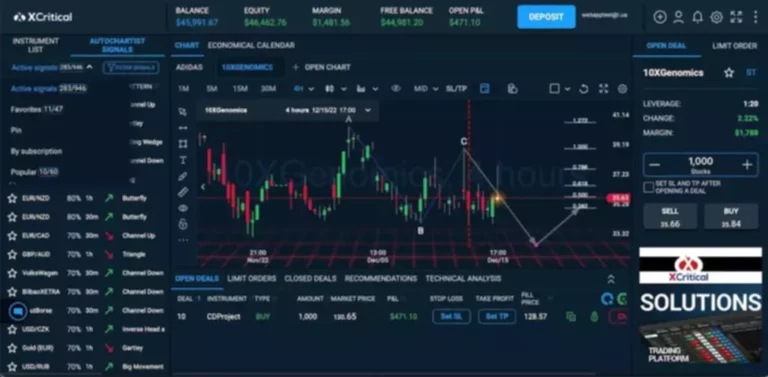Cryptocurrency Payment Gateway: What is it and How Does it Work?
Content
Cryptocurrency has no direct connection with any country or bank system, this greatly enhances cross-border trading without cross rates. Crypto prices can Proof of personhood experience high volatility if you’re not using a stablecoin. This can make it difficult for the payee to plan their finances accurately.
How much does using a Blockchain Payments System cost?
While it’s still pretty early in the game for cryptocurrency payment system crypto payment processors, it’s now easier than ever to accept crypto at your point of sale or online using a crypto payment gateway. Below, we’ll break down what crypto payment gateways are all about and the pros and cons of using crypto as an alternative payment technology. KYC verification was said to be mandatory in some crypto payment gateways but may differ in others. Some providers pay special attention to the security systems and sometimes require users to pass through KYC checks to ensure they are genuine. With KYC raising the level of protection, the procedure may add an extra layer to client registration. Payid19 is a popular cryptocurrency payment gateway for businesses, enabling them to accept cryptos such as Bitcoin payments and others.
Frequently Asked Questions About our Crypto Payment Processor:

This means that with the https://www.xcritical.com/ integration of Key2Pay, accepting cryptocurrencies becomes easier for online business organisations. This flexibility makes it attractive to many customers since more young people, especially millennials and Gen Z, embrace technology. The recipient creates a digital invoice to be paid using their payment gateway. This is usually a QR code containing the receiving wallet address and the amount needed. For example, purchasing a $10 (US dollar) meal would require $10 of a specific cryptocurrency at the current market rate.
Best Cryptocurrency Payment Processing Gateways
If you accept crypto payments, you’ll need a way to keep prices updated in real time. You’ll also need to develop an appetite for risk or use a gateway that shields you from it. The best way to accept crypto at your business is with a crypto payment gateway. Security protocols can vary among different payment gateways, but many employ advanced encryption and two-factor authentication. Some even offer insurance coverage for digital assets stored within the platform. Ensure that you select a gateway that adheres to the highest security standards.
PaymentCloud: Best for High-risk Merchants
With a repertoire of over 100 supported cryptocurrencies, CoinGate offers a user-friendly cryptocurrency payment gateway solution. The straightforward setup and management make it suitable for businesses seeking efficiency in their payment processing. NOWPayments excels as a cryptocurrency payment gateway that supports a wide spectrum of over 100 cryptocurrencies. Its simplicity in setup and utilization makes it an accessible choice for businesses of various sizes. The platform’s competitive transaction fees, set at 0.5% for most cryptocurrencies, contribute to its appeal among cost-conscious enterprises. As one of the earliest players in the field, BitPay enjoys a solid reputation in the realm of cryptocurrency payment gateways.
It serves as a digital payment platform in more than 200 countries and helps users to make payments in cryptocurrencies. CoinPayments has a multi-coin wallet feature and also supports a mobile PoS system. KUNA Pay offers a seamless solution for merchants to accept cryptocurrencies. It provides access to analytics for different payment types through a personal dashboard.
- Note that PayPal’s crypto services are custodial, which means that you don’t hold the private keys for your crypto.
- CoinGate another bitcoin payment gateway for your business allows you to use bitcoins and altcoins and accept payment in USD, EUR, and BTC.
- Being one of the best crypto exchange platforms, Binance provides several features and benefits to its customers.
- Binance Pay also has a list of Merchant Stores that accept payments through the service.
- With KYC raising the level of protection, the procedure may add an extra layer to client registration.
- Coinbase is one of the most popular bitcoin exchanges for business transactions.
Unfortunately, it’s also a bit of a Wild West market with a “move fast, break things” credo. The lack of a regulatory framework has also made the sector a hot spot for fraud. The answer to whether or not you should accept crypto as a payment method depends greatly on the composition of your customer base and, to a lesser extent, your industry. Buy, store, swap and spend your favorite crypto all in one secure app.

Due to its quick and high security features, exchange processing has been revolutionized by the platform. Additionally, it supports various payment methods including recurring payments, invoices, and payment links, catering to diverse business needs. With an uptime of 99.99%, the platform guarantees almost uninterrupted transaction processing. Being an EU-licenced crypto provider, CoinsPaid adheres to Know Your Business (KYB) and Anti-Money Laundering (AML) regulations, ensuring compliance with financial standards. The platform has undergone and passed numerous independent cybersecurity audits, confirming its robust security measures. It’s natural to be skeptical of something new, especially when it involves money and finances.
As a specialized gateway for Bitcoin transactions, Paymium offers a streamlined approach for businesses that predominantly deal with the pioneering cryptocurrency. With a specialization in cross-border payments, CoinRemitter addresses the challenges of international transactions in the cryptocurrency space. Boasting support for more than 150 countries, the platform ensures a comprehensive global reach. There are different cryptocurrency types, but the most popular and widely accepted are Litecoin, Ethereum, and Bitcoin. Consumers primarily acquire cryptocurrency for investment, but in the past few years, there has been a steadily growing demand to use crypto to pay for goods and services. A digital wallet allows users to accept, hold, convert, and trade crypto.
It focuses on security and regulatory compliance, making it a trustworthy platform for users. Hard electronic currency does not have the ability to be disputed or reversed when used. Usually, when a payment is reversed there is a “clearing time.” A hard currency can be “softened” with a third-party service. Old modes of payment sometimes provide high charges for cross-border payments, or large transactions. Payspacemagazine.com is an expert resource for FinTech and e-commerce, start-ups, payment systems, online payments, traditional and alternative currencies worldwide. When this term is used in the context of payments, it refers to information related to accounts, account balances and transactions.
Specializing in payments, BitPay has emerged as a strong player in cryptocurrency transaction facilitation. The platform allows merchants to accept Bitcoin and Bitcoin Cash as payment, while users can manage their crypto-based transactions. Binance is often hailed as one of the largest cryptocurrency exchanges globally, catering to a broad spectrum of users, from casual traders to professional investors. With its app available for both mobile and desktop, Binance supports the trading of hundreds of cryptocurrencies and a range of financial services. Cryptocurrency is a sub-type of digital currency and a digital asset that relies on cryptography to chain together digital signatures of asset transfers, peer-to-peer networking and decentralization.

Paymium focuses on catering to Bitcoin payments with its user-friendly gateway solution. Its simplicity in setup and utilization suits businesses seeking straightforward cryptocurrency payment integration. Operating with a 1% transaction fee for Bitcoin payments, Paymium maintains competitive pricing while emphasizing ease of use. CoinGate’s transaction fee structure, operating at 1% for most cryptocurrencies, ensures businesses can embrace cryptocurrency payments while keeping costs in check. Through its accessibility and competitive pricing, CoinGate positions itself as a reliable choice in the cryptocurrency payment landscape. Cryptocurrency payments are not subject to chargebacks, so you don’t need to worry about chargeback fees or fraudulent transactions.
You can also opt for payment gateways like Coinbase that offer to insure their user’s funds. In 2022, PaymentCloud partnered with RocketFuel Blockchain, allowing its merchants to accept crypto. RocketFuel can issue digital invoices and manage recurring billing with a crypto payment method. PaymentCloud, meanwhile, makes it possible for high-risk businesses to acquire a merchant account and provide an option for getting paid with cryptocurrency. PayPal is a pioneer in mobile payments and offers one of the oldest digital wallets on the market. Since cryptocurrency began gaining popularity, I’ve been waiting for PayPal to add this feature, and it did not disappoint.
It has pre-made SDK codes for creating checkout and subscription buttons, page redirection, and page banners. CoinGate’s checkout window includes an option to accept Bitcoin & crypto payments from millions of Binance Pay wallet users directly so they can make purchases from you with a few taps on the screen. Bitcoin to bitcoin transactions are free of charge, with no intermediary. Bitcoin payments go directly from the customer’s wallet to the merchant’s wallet. TripleA also allows local currency withdrawals to avoid any price volatility with only a 0.8% flat fee, which is one of the lowest you can find. OpenNode is one of the most popular Bitcoin payment processors for business transactions.
PayPal allows its users to trade cryptocurrency, but what I like most is how seamless it is for customers to switch between their fiat and crypto balances to make payments. Like BitPay, Coinbase is easy to use, but I think first-time users will like that you only need an email address to sign up for the payment gateway. The sheer number of supported cryptocurrencies plus the considerably lower fees also makes Coinbase a better option than BitPay if most of your customers use crypto. Note, however, that Coinbase only supports US dollars and USDC for settlements. Accept cryptocurrency payments by connecting your website to our versatile API, which is well-documented and offers white-label options. SpicePay, another cryptocurrency payment gateway allows you to accept and exchange cryptocurrencies and store your funds securely in your wallet.
